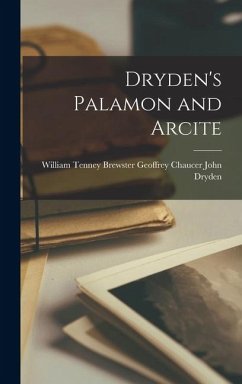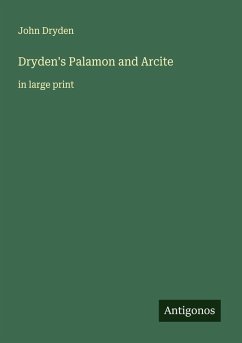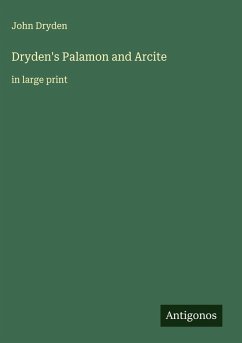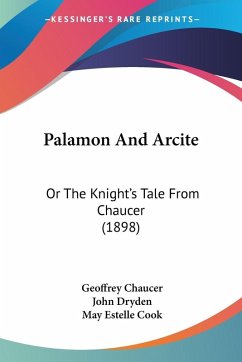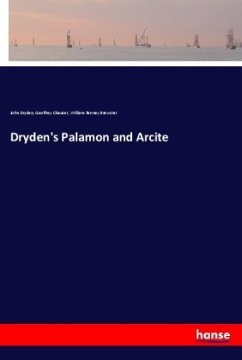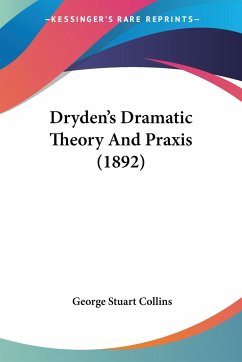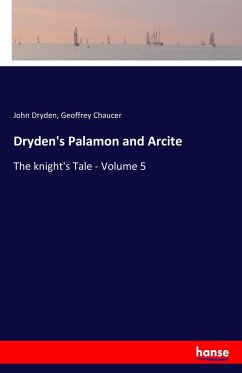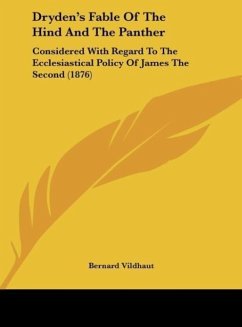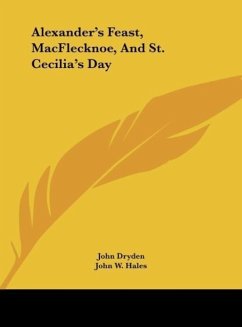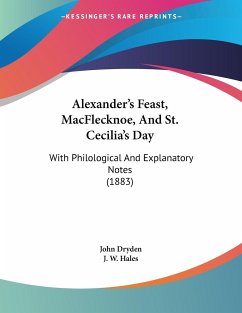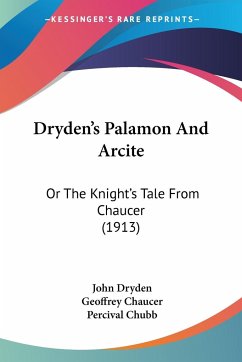
Dryden's Palamon And Arcite
Or The Knight's Tale From Chaucer (1913)
Herausgeber: Chubb, Percival
Versandkostenfrei!
Versandfertig in 1-2 Wochen
26,99 €
inkl. MwSt.

PAYBACK Punkte
13 °P sammeln!
Dryden's Palamon and Arcite: Or The Knight's Tale from Chaucer is a book that was first published in 1913. The book is a retelling of Geoffrey Chaucer's classic story, The Knight's Tale, which tells the story of two knights, Palamon and Arcite, who fall in love with the same woman, Emily. The book is written by John Dryden, a prominent English poet, literary critic, and playwright who lived in the 17th century. Dryden's version of the story is written in a poetic style and is considered to be one of the most influential adaptations of Chaucer's work. The book is a must-read for anyone interest...
Dryden's Palamon and Arcite: Or The Knight's Tale from Chaucer is a book that was first published in 1913. The book is a retelling of Geoffrey Chaucer's classic story, The Knight's Tale, which tells the story of two knights, Palamon and Arcite, who fall in love with the same woman, Emily. The book is written by John Dryden, a prominent English poet, literary critic, and playwright who lived in the 17th century. Dryden's version of the story is written in a poetic style and is considered to be one of the most influential adaptations of Chaucer's work. The book is a must-read for anyone interested in English literature or poetry, and is a classic example of the power of storytelling and the enduring appeal of great works of literature.This scarce antiquarian book is a facsimile reprint of the old original and may contain some imperfections such as library marks and notations. Because we believe this work is culturally important, we have made it available as part of our commitment for protecting, preserving, and promoting the world's literature in affordable, high quality, modern editions, that are true to their original work.



